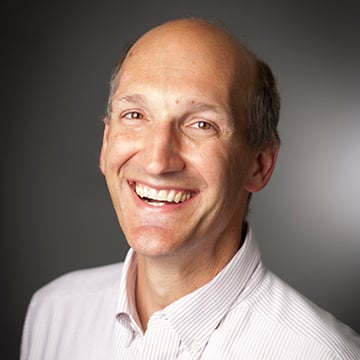
Darrell Schlom
Professor
Darrell Schlom is the Tisch University Professor in the Department of Materials Science and Engineering at Cornell University. After receiving a B.S. degree from Caltech, he did graduate work at Stanford University receiving an M.S. in Electrical Engineering and a Ph.D. in Materials Science and Engineering. He was then a post-doc at IBM's research lab in Zurich, Switzerland in the oxide superconductors and novel materials group managed by Nobel Prize winners J. Georg Bednorz and K. Alex Müller. In 1992 he joined the faculty at Penn State in the Department of Materials Science and Engineering, where he spent 16 years before joining the faculty at Cornell in 2008. His research interests involve the heteroepitaxial growth and characterization of oxide thin films by reactive molecular-beam epitaxy (MBE), especially utilizing a 'materials-by-design' approach to the discovery of materials with properties superior to any known. His group synthesizes these oxide heterostructures using molecular-beam epitaxy (MBE). He has published over 700 papers and 12 patents resulting in an h-index of 94 and over 46,000 citations. His work has been recognized by the highest awards for materials discovery by four relevant societies: the MRS Medal from the Materials Research Society, the Frank Prize from the International Organization for Crystal Growth, the McGroddy Prize from the American Physical Society, and the John A. Thornton Memorial Award/Lecture from the American Vacuum Society. He is a Fellow of the American Physical Society, the Materials Research Society, the American Vacuum Society, and is a member of the National Academy of Engineering.
Prof. Schlom was named the Tisch University Professor in 2023.
Research Description
The focus of my group's research is investigating and perfecting the properties of oxide materials for electronic uses. To do this, we grow oxide thin films on single crystal substrates of closely related substances. The single crystal substrate provides a structural template for the thin films that we grow. The films follow this atomic template and are thus said to be epitaxial (inheriting their crystalline arrangement from the underlying substrate). Our focus on oxides is due to the tremendous promise that these materials hold for electrical applications. Oxides exhibit an unparalleled variety of electronic properties. Insulating, semiconducting, and even superconducting oxides all exist within the set of structurally compatible oxides known as perovskites. This structurally related family also includes oxides that are magnetic, ferroelectric, or even both at the same time. In short, this family of oxides contains the full spectrum of electronic properties. A major challenge, however, is to prepare these materials with sufficient quality and integrate them with adequate control so that these properties can be fully utilized in electronic devices. This is our research goal.